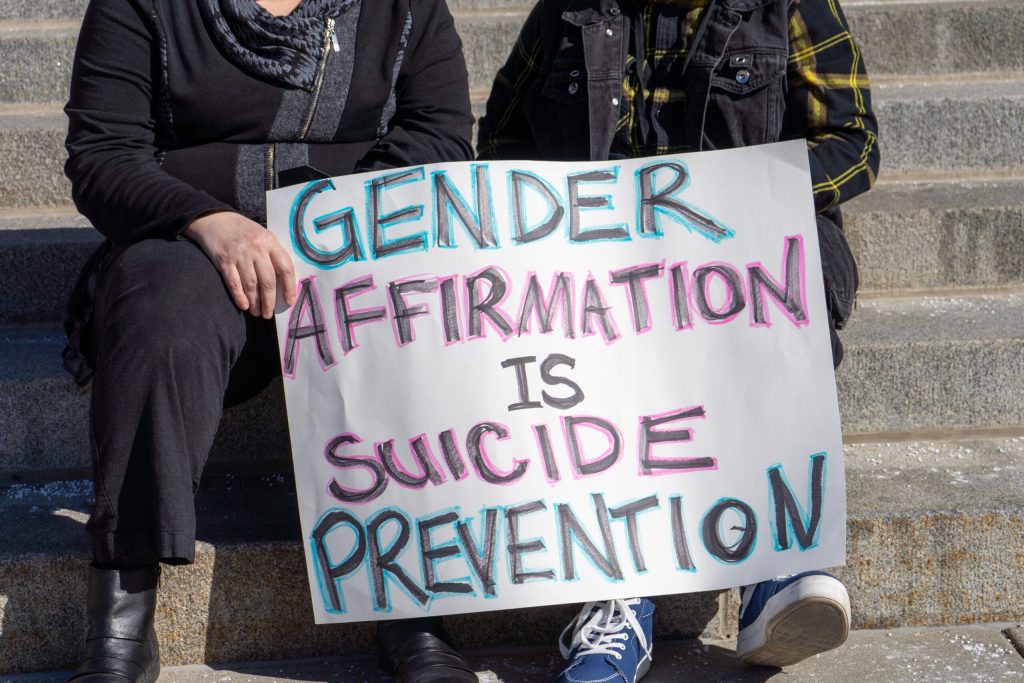Republicans in the Kansas legislature are ready to make the state the 25th to prohibit medical care for trans kids when they vote to reject it.
While Gov. Laura Kelly (D) is anticipated to reject the bill, Republicans have strong control in both the Kansas House and Senate.
“Today, the Senate took a clear stand in favor of helping children and preventing harm by stating that radical transgender beliefs and the surgery of minors is not legal or accepted in Kansas,” said state Senate President Ty Masterson (R) following the vote on Wednesday that sent Senate Bill 233 to the governor’s desk.
Gov. Kelly has promised to reject the bill.
If passed, the law will stop transgender young people under 18 from getting necessary care, including surgeries and treatments to confirm their gender identity. Gender-affirming surgery is rarely done on minors, but treatments to delay the start of puberty – so that trans youth and their families have more time to understand their identities before the permanent effects of puberty begin – have been proven to decrease the risk of suicide throughout their lives for transgender individuals.
With the expected rejection, Kansas will become the third state this year to ban gender-affirming care for minors. Similar laws in four states are held up in courts.
Senate Minority Leader Dinah Sykes (D) begged Republicans to “show some humanity and kindness” with a “no” vote.
“Families of trans kids are beside themselves,” she told fellow lawmakers. “They’re scared, they’re tired, and they’re worried that we will lose more loved ones if this bill passes.”
“To our beloved Kansans who are listening to this debate on this bill, I hope that you know there are people in this room that are listening to you,” she said. “We know that you’re getting the care that you need so that you can live your life fully. We understand what this law will do to you and your families if it passes.”
Last year, Kelly rejected a similar bill along with another measure to prevent transgender women and girls from female school sports, but GOP moderates hesitated when their far-right colleagues voted to override.
This time, votes advancing Senate Bill 233 indicate the state House and Senate Republican supermajorities will succeed in enacting the anti-trans legislation.
As with other conservative states that have banned gender-affirming care for minors, opponents of the law are certain to challenge it in court. So far, the outcome has been mixed for legal challenges, with federal appeals courts split on whether the bans are constitutional. Ultimately, the Supreme Court, which has a 6-3 conservative majority, may intervene in the matter.









